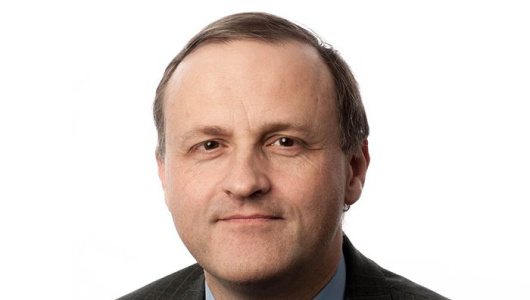 Anyone who knows anything about paraplanning will talk about how much the role has evolved over the last 15 years. Given that strong technical skills are essential for the job, it is not surprising that these have been used to pin down and define the role of the paraplanner.
Anyone who knows anything about paraplanning will talk about how much the role has evolved over the last 15 years. Given that strong technical skills are essential for the job, it is not surprising that these have been used to pin down and define the role of the paraplanner.
However, paraplanners who support financial advisers that take a collaborative approach to the advice process will scoff at the suggestion that hard technical skills are all they need. Some paraplanners will be required to attend client meetings and even those who do not will need to communicate the fruits of their research to someone – either financial advisers or colleagues in the industry, if not the client.
So, do all paraplanners need soft skills or can they get by without much training in this area?
Clear communication
Many commentators point out that even if paraplanners are not in client-facing roles, they need to have good communication skills.
Chartered Institute for Securities and Investment head of financial planning Jacqueline Lockie says paraplanning is a technical role but paraplanners need to be able to communicate clearly with the planners they work alongside.
“With more widespread use of cashflow software, paraplanners are increasingly attending client meetings to show ‘what if’ scenarios for clients, so there is an increasing need for paraplanners to develop their soft skills to communicate effectively,” she says.
However, Walker Crips Wealth Management managing director Dominic Martin thinks it is advisers who need to develop soft skills rather than paraplanners.
Money Marketing’s research on the state of the paraplanning profession
“Since paraplanners have little client contact, in my view it is not necessary for them to bear these soft skills and questioning techniques, as these will not be required for their day-to-day role. That said, for a paraplanner to have good social skills is a must,” he says. “It might be that they are able to answer clients’ queries when they telephone the office if the adviser is not present, or explain an investment query to the client.”
Overcoming a fallacy
Some commentators say there has always been a need for soft skills. The Paraplanners managing director Richard Allum thinks the idea that there is a shift away from the focus being on technical skills is “a bit of a fallacy”.
“Paraplanners haven’t had a sole focus on technical skills for years,” he says.
“Paraplanning is about taking complex scenarios and communicating them to advisers, clients or colleagues in a way they understand. Whether it’s speaking or writing it doesn’t matter – communication can happen in different forms and it is an essential skill.
“The problem is that there still seem to be some old-school views that paraplanners are shut away in the back room in case they say something wrong.”
Although Allum says the roles of the paraplanner and adviser have become closer in recent years, he does not believe the boundaries between the two are becoming blurred. “There are plenty of advice firms where paraplanners are not allowed in client-facing roles, but in really good firms there is a collaborative approach where financial planners and paraplanners have complementary skills and the client is clear who does what.”
Jennifer Parker, head of the New Model Business Academy, says that regardless of whether a paraplanner attends client meetings, arranges meetings or speaks to the client at all, many soft skills are vital to their role, including time management, prioritisation, teamwork and collaboration. She adds that one of the reasons that there are now formal qualifications and apprenticeships in paraplanning is to try and create a level standard that all paraplanners should meet.
“To pass the NMBA paraplanning apprenticeship, candidates must meet all of the required learning outcomes set out in the apprenticeship standard,” she says. “In our framework for training the paraplanners of tomorrow, soft skills are just as key as the technical knowledge.”
Square pegs in round holes
Some commentators say paraplanning is not linear and that the paraplanner’s role should be whatever suits each advice firm and the individual paraplanner.
“Some firms will want a skilled individual able to strike up a proactive relationship with clients, and others will want a hardcore technician to just solve problems,” says Damian Davies, director at outsourced paraplanning firm The Timebank. He points out that some paraplanners will be more suited to the technical side while others will suit client-facing roles, so it is important not to “fit square pegs in round holes”.
He says: “What’s most important is that whatever role the paraplanner has, they are supported by the firm with training and development to deliver that role.”
Lime Outsourced Paraplanning managing director Rebecca Lucas is passionate about soft skills and thinks it is important for paraplanners to assess what they need in the way of personal development and tailor it to themselves and their role.
“I think working on yourself is really important to develop as a well-rounded paraplanner,” she says. “For example, it’s great being very technical on pensions but you aren’t going to be as effective in your role if you struggle with time management or with assertiveness and managing expectations.”









It is essential for both Financial Advisers and paraplanners to have skills for their role, but developing these skills is a journey not an end point. In developing the Financial Adviser School, we worked closely with firms and students to ensure that these essential components were intertwined. Once graduated, there should be time spent looking at mapping out relevant CPD for the coming year to hone their skills and knowledge year after year.
Mr Allum speak sense.
Mr Martin is a pillock who may one day move out of the Stone Age.